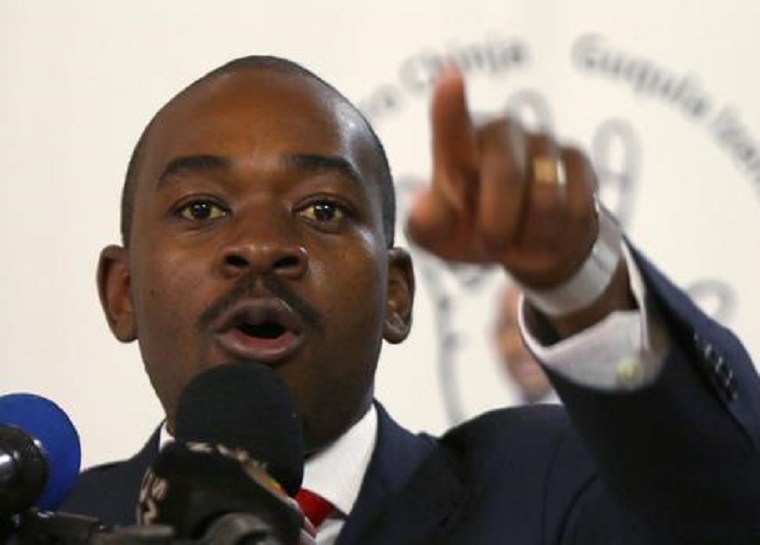- Constitutional Agenda
In December 2019, the government of the day gazetted Constitutional Amendment No 2 – HB23/2019.
The Bill proposes a raft of amendments to the Zimbabwean Constitution.
The Constitutional Amendment in the main seeks to restore the Imperial Presidency that we thought we had dealt with decisively in 2013 through the approval in a referendum of a new constitution.
Any Constitutional Amendment must be negotiated like the old constitution itself. We are seeing a self-serving decision to personalise the State through unnecessary Constitutional amendments.
The country is plagued by pressing issues which require measured and visionary leadership.
Instead we have those obsessed with consolidating personal power. They told the world that reforms take time. But when it comes to changing laws for their own selfish ends, they are fast.
The calls for the alignment of the constitution must ring louder than before. There should be no amendment to the people’s contract without first aligning the constitution –Alignment not amendment.
- The Economic Agenda
The Economist’s Intelligence Unit expects inflation to average 165.5% in 2020, owing to shortages of basic goods and US dollars and sustained currency weakness. The ongoing drought will continue to constrain exports and necessitate imports in 2020.
Unemployment and joblessness remain a palpable threat to national security. Government is best that governs least.
Governments don’t run companies. The best they can do is to govern and create a conducive environment for ease of doing business.
Modern defense, is not in military in nature but economic. A functioning economy is the strongest defense force for any nation.
We must return to basics.
It is important that measures be undertaken to encourage massive productivity to drag the economy out of recession.
Attracting investment will be critical and to do so Zimbabwe’s ease of doing business must be attended to.
The Zimbabwean economy is in a tailspin suffocating from massive headwinds across all sectors of the economy.
The economy is not performing and therefore the country is suffering from the twin deficits of democratic legitimacy and performance legitimacy. Without these two ingredients, that constitute two ingredients of the Social Contract, the state can implode at any moment and that is why it is essential to create a soft landing through national dialogue.
Macroeconomic Stability
In the past few years, the economy has embarked on an expansionary fiscal policy characterised by huge budget deficits and excessive expenditure. We propose that fiscal consolidation must be pursued and that we should live within our means – We eat what we kill.
The Public Finance Management Act must be amended to prescribe the issuance of TBs. More importantly if government is to borrow, such borrowing should not exceed 3 percent of GDP.
Monetary Policy and Exchange Rate
In February 2019 through SI 33 of 2019, the government introduced the Zimbabwe dollars. The sudden introduction of the Zim dollar was irrational. It is not possible to issue a currency and expect that currency to survive without attending to the fundamentals. We have seen the local currency loosing value thereby undermining savings and investments. We propose therefore the repeal of SI142 of 2019, and the Finance Act number 2 of 2019. In short, we propose the re-dollarization of the economy in the immediate short term. In the mid-term, Zimbabwe has no choice but to join the Rand Monetary Union.
The Zimbabwean economy is so integrated with the South African economy which is its largest trading partner, due to the high cost structure imposed by the USD.
Inflation:
The mismanagement of monetary policy, the creation of money by the RBZ, an expansionary fiscal policy and the creation of treasury bills have all contributed to the return of hyperinflation in Zimbabwe. Zimbabwe’s rate of inflation standing unofficially at 700 percent and officially at 402 percent is now the second highest in the world.
Inflation needs to be addressed by a cocktail of measures which include fiscal consolidation, macroeconomic stability and proscription of the Reserve Bank’s rogue money printing activities. Having gone through the sludge of inflation in 2008 it is not acceptable that the present government has allowed hyperinflation to bounce back, the current situation is an indictment against the present regime.
Dealing with Debt
Zimbabwe’s huge debt, upward of $11 billion to International Financial Institutions and the Paris Club of Lenders, as well as more than $18 billion of domestic debt continues to be a challenge.
Zimbabwe at this point is a failed state, there is no way to beat about the bush. It is a state that needs business rescue.
That requires not only developmental funding to be made available, but equally for debt payments to be suspended for a period of 5-10 years to allow the critical work of national rebuilding to truly occur. Some kind of a negotiated debt moratorium.
Corruption
Zimbabwe has risen dramatically on the global Anti-Corruption Index. Recent work in the Public Accounts Committee has unearthed massive corruption done through the Ministry of the Finance itself.
In 2017 treasury without supporting vouchers siphoned off USD 2,9 billion ostensibly to Command Agriculture. This is captured in the Auditor General’s report. The same report of that same year shows that USD 3,3 billion was siphoned outside parliament and public finance management regulations again channelled towards command agriculture.
Immediate action must be taken to ensure that state sanctioned looting does not happen again.
The Plight of Workers
The average worker in Zimbabwe faces unmitigated suffering. Since January 2019, the Zimbabwean dollar has lost 85% of its value thereby effectively devaluing the wage of the worker. As this has been happening, massive inflation has also short up which is now in access of 700%.
The MDC thus supports, the call for a living wage being made by unions and indeed supports, the introduction of a US$ wage in respect of all civil servants and workers in the private sector.
Such a call, is consistent with our demand that Si142/2019 must be repealed and that the country must effectively redollarise.
This is the only way forward.
We will also support the call by the unions for collective job action to protect their positions.
Power and Energy
The shortage of both fuel and electricity has become a human rights issue. Zimbabwe has moved from a situation where on average 18 hour power cuts were being experienced to a situation where there are now total power blackouts in many areas of Zimbabwe.
The Constitution protects the Right to Human Dignity in Section 50. Our current power crisis is indeed an infringement of the right to human dignity and indeed the right to life.
We propose that the government must immediately scrape the huge subsidies of almost US$70 million per month that they are dishing out to cartels in the form of Trafigura and Sakunda.
The fuel subsidies should then be used to import at least 400 megawatts of energy from Eskom or HBC in Mozambique.
In the long-term we propose that 2000 megawatts of energy must be found particularly from Hwange 7 and 8. We need to focus on renewable energy, methane gas and the potential 30 or so hydro stations in Manicaland. This exercise will require massive capital and therefore the resolution of Zimbabwe’s economic crisis is imperative to national development and the restoration of human dignity.
In a nutshell, A raft of measures are therefore urgent and important;
– Decisively dealing with corruption
– Fixing politics, restoring confidence and trust.
– Getting Zimbabwe to be a productive country
– Push up the productivity capacity
– Clear Vision, plans, the best people to do the job with clear KPIs.
– Strong institutions
– Dealing with livelihoods
– Smart infrastructure in particular, smart energy and alternative energy sources
– Dollarization and a basket of currencies
– Workers salaries and civil servants wages must be paid in US dollars
– Dealing with the debt crisis through HIPC
– Fees must fall
– Prices must fall
Continued next page
(631 VIEWS)

